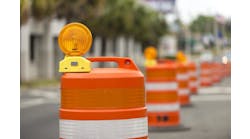The U.S. Department of Transportation (U.S. DOT) announced today that it is proposing a rule to require vehicle-to-vehicle communication technology in new cars.
Vehicle-to-vehicle (V2V) systems allow cars to communicate to each other in an effort to warn drivers about potential accidents and prevent crashes. The basic technology uses dedicated short-range radios to allow for the cars to communicate, and can send data such as location, speed, direction, and braking status. The U.S. DOT claims that the radio technology will have a range of about 300 m, and offer a farther range than radar or camera sensors, in addition to not being as impaired by obstacles or other vehicles.
The U.S. DOT hopes that the technology would be used to warn drivers of oncoming dangers, particularly while turning at intersections or changing lanes. Additionally, the department notes that cars with automated driving system (or even fully self driving cars) would greatly benefit from the addition of V2V data in preventing or minimizing the dangers of accidents. The V2V announcement comes on the heels of the recently published U.S. DOT guidelines for self-driving cars from earlier this year.
The National Highway Traffic Safety Administration (NHTSA) estimates that the added safety benefits from V2V and V2I (vehicle-to-infrastructure communication) could reduce or eliminate up to 80% of non-impaired crashes.
The technology also considers personal privacy, with the U.S. DOT claiming that no personal information about the driver or vehicle will be broadcast using V2V, only generic safety information. The NHTSA is also working to make sure the system is safe from a cybersecurity standpoint to ensure the data sent is protected from any digital attacks.



